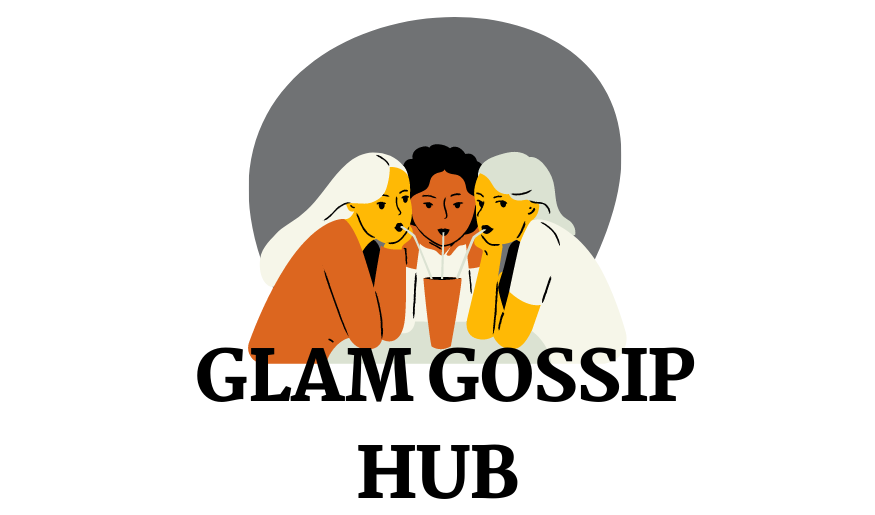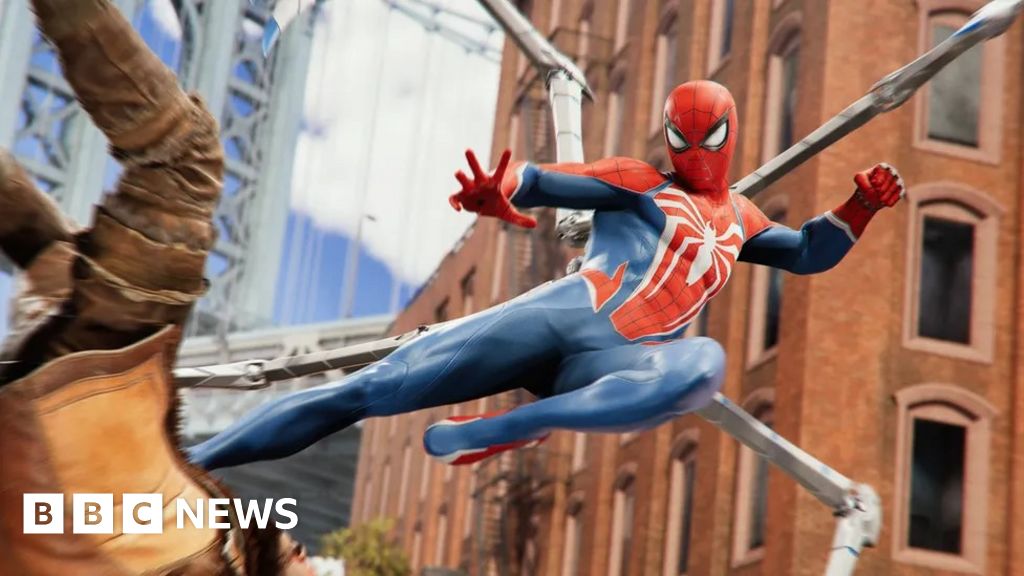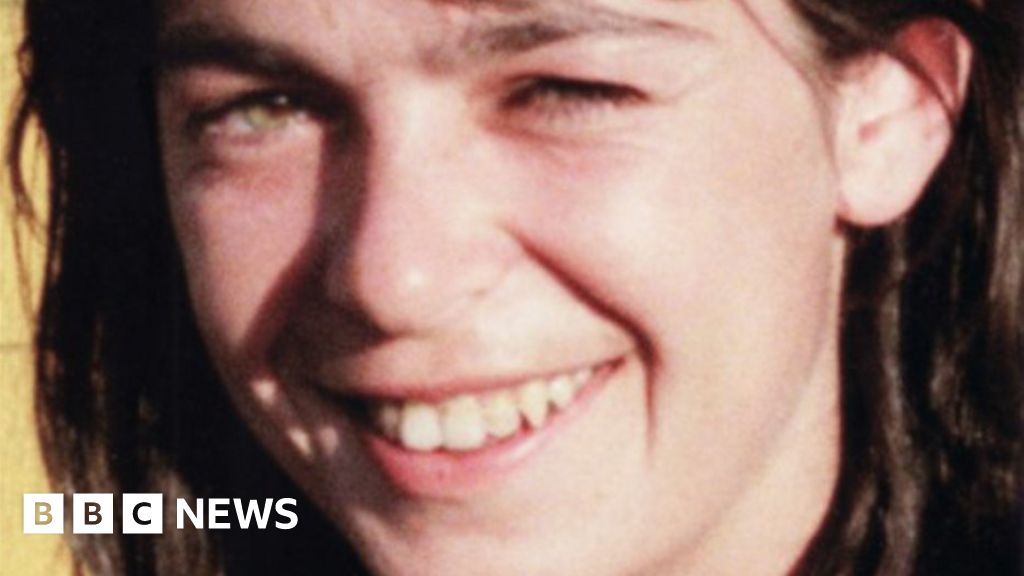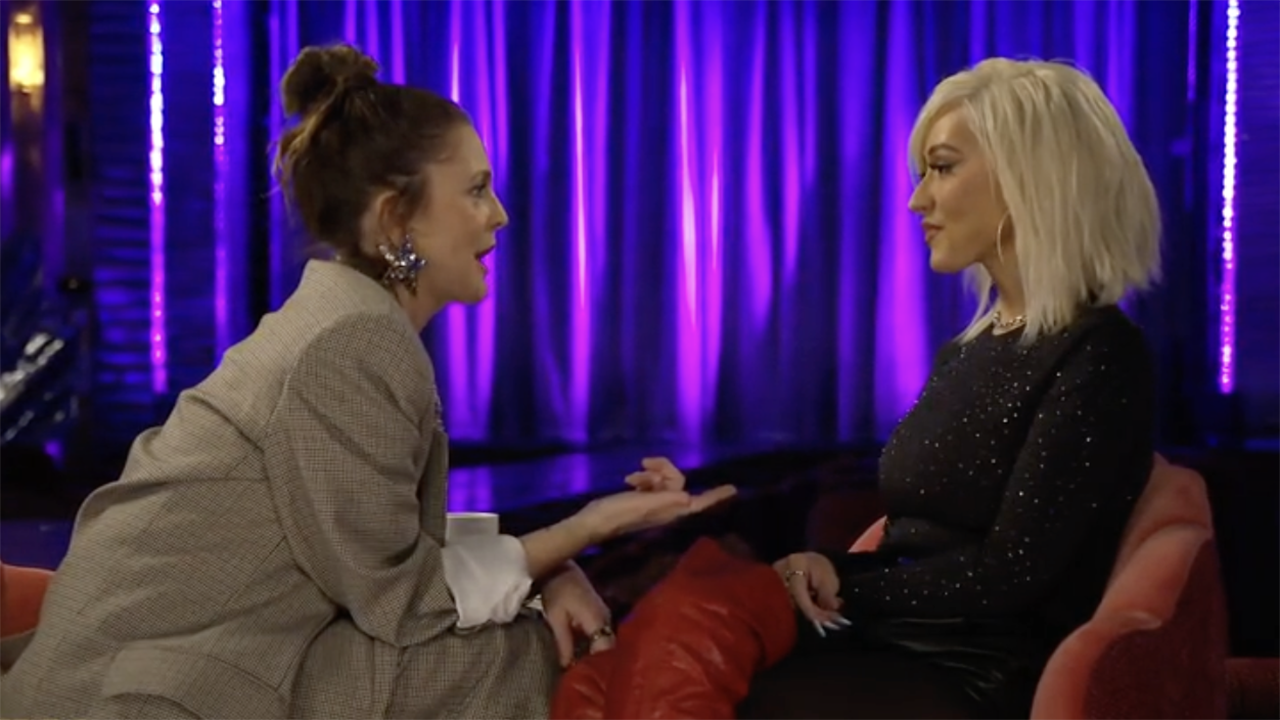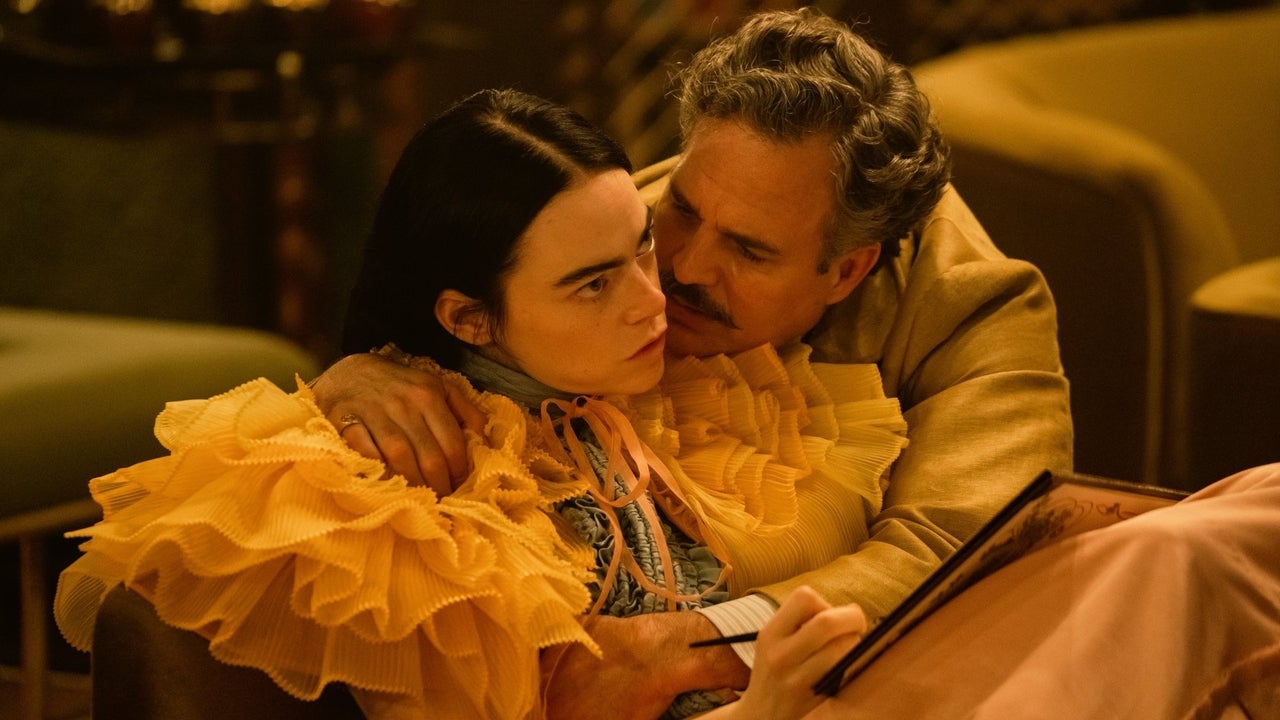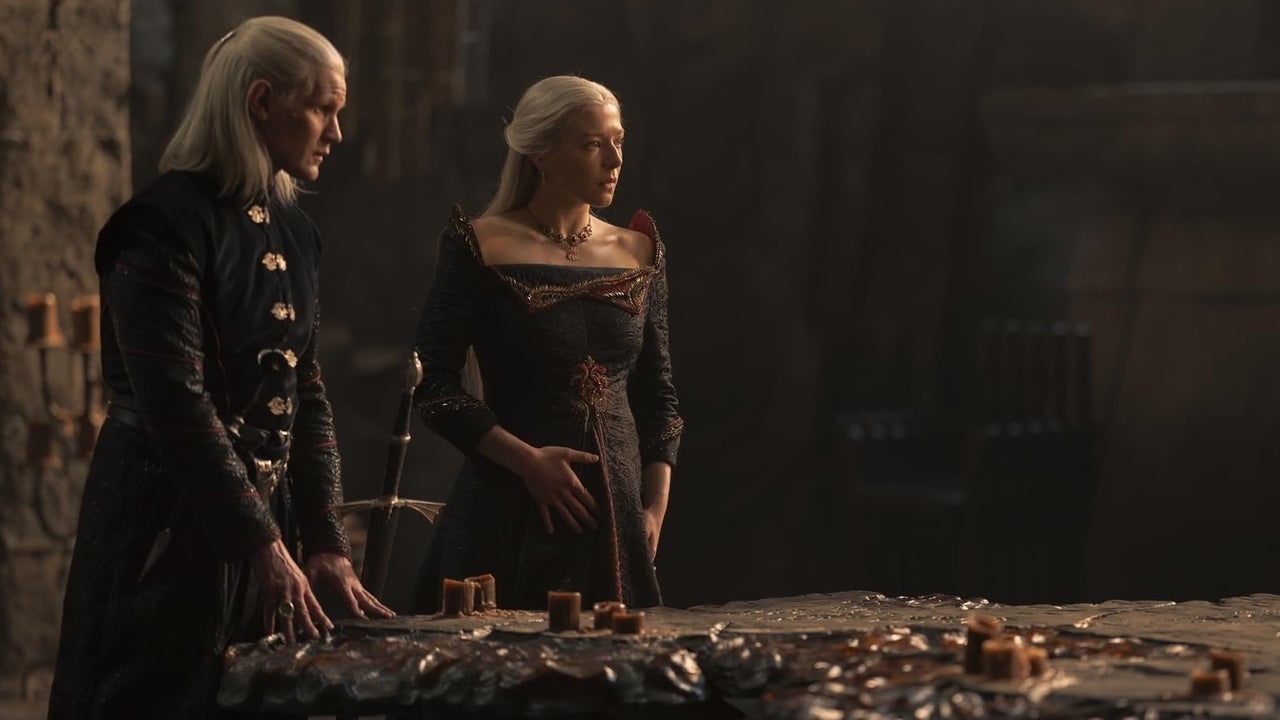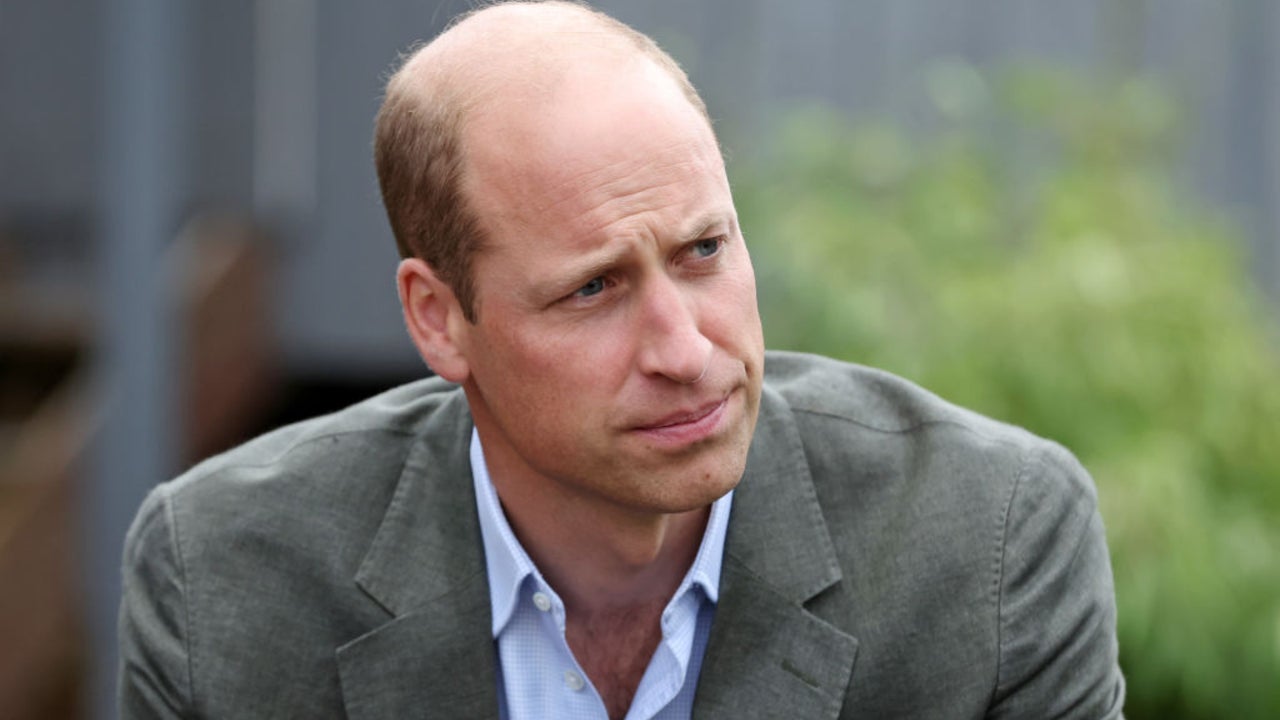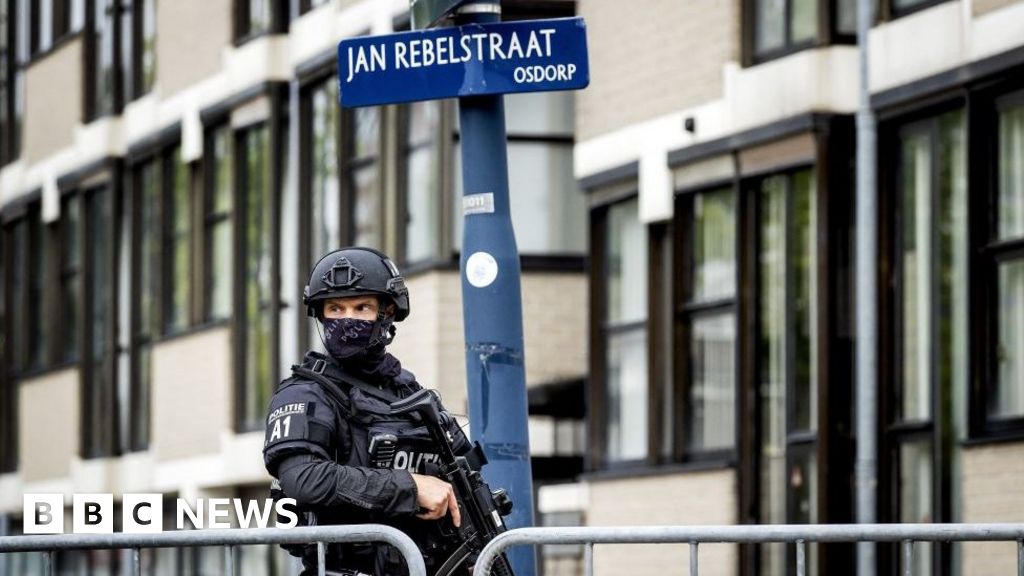
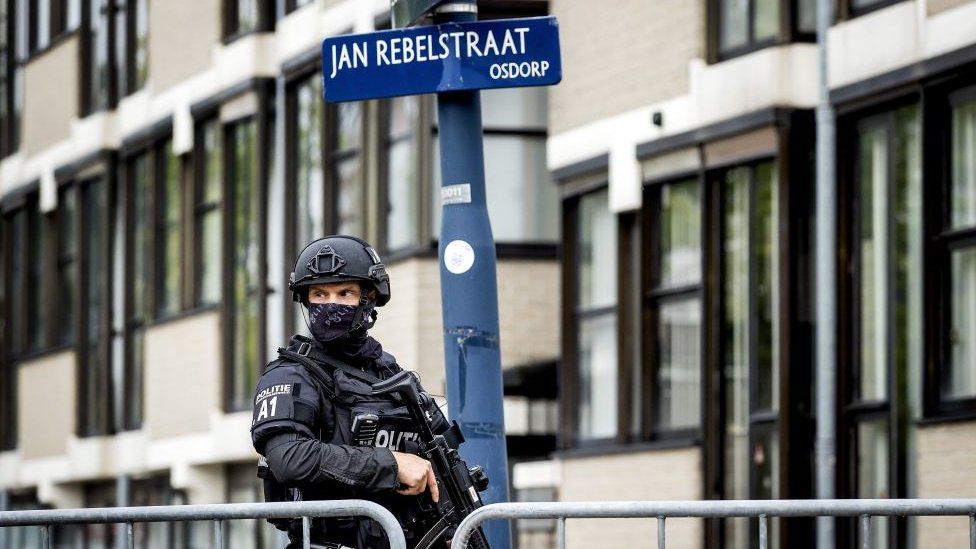
Three members of a drug cartel involved in a series of gangland killings have been jailed for life, in the biggest criminal trial in Dutch history.
The gang’s “undisputed” ringleader, Ridouan Taghi, was for years one of the Netherlands’ most-wanted fugitives.
Taghi was jailed for murder, firearms offences and aggravated robbery.
Two other men, Said R and Mario R – whose full names cannot be revealed under Dutch law – were also given life sentences.
They were convicted of complicity in murder, attempted murder, preparation for and complicity in murder.
In total, 17 people were handed sentences ranging from life in prison to one year and nine months.
The nature and scale of this case is unprecedented in the Netherlands.
It took 142 hearing days spread over almost six years, 800 pages of pleadings and more than 3,000 pages of documents from the lawyers to arrive at today’s verdicts.
From the outset the “mega-trial” – which began on 11 March 2021 – has been shrouded in secrecy and security.
The court president said the “Marengo” trial – named after the codeword for the police operation which led to the arrests – was about “ruthless, disruptive violence”.
“When we read the messages in the file, we end up in a world where human life has no value,” he said.
The trial has captivated a country that has recently been forced to confront its violent underworld.
The gang’s murders were well prepared by using “spotters” or using sophisticated sounding beacons.
According to the court, the organisation counted not only gunmen and drivers among its many members, but also corrupt officials who provided vital insider information.
Taghi, 46, was found guilty of being the undisputed leader of the criminal organisation, which is thought to have been one of the Netherlands’ biggest drug cartels.
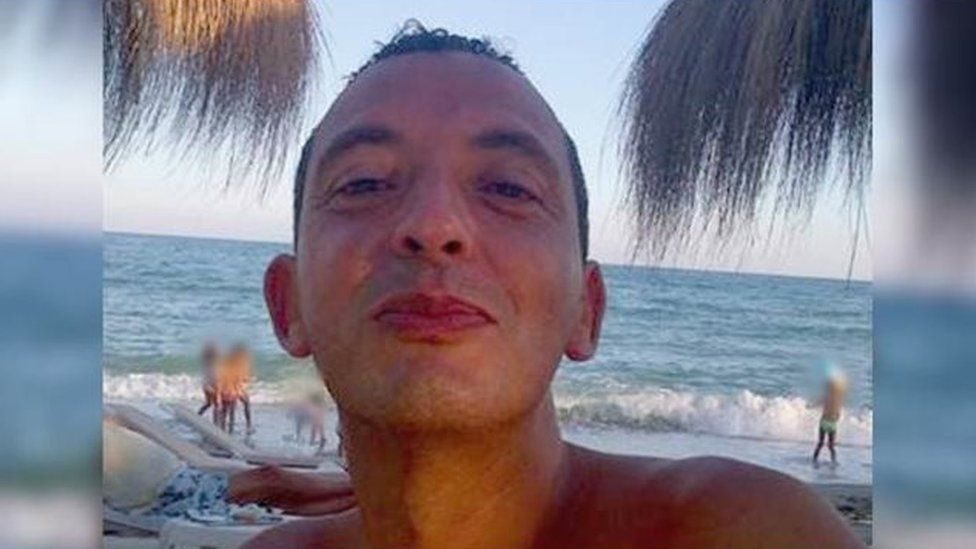
He was the subject of an international arrest warrant and was eventually arrested in Dubai in 2019, where he had been living below the radar in a suburban villa.
Under his leadership, five people were assassinated over the course of 18 months. There were also two attempted murders and more were planned.
An attack was also prepared on a “spy shop” selling sophisticated surveillance gear where the gang were regular customers.
For years, Taghi and his gang seemed to operate with impunity – their crimes shrouded by a culture of fear and silence.
Criminal rivals, associates who defaulted on debts or talked to the gang’s enemies or the police were all at risk of ending up on a death list.
Taghi’s methods belonged to a new type of Dutch mobster that grew up in the vacuum left behind by the notorious old-school Dutch gangsters like Willem Holleeder – and signalled a worrying escalation in the drugs war.
The ease with which Taghi decided that someone should be killed was described by the judges as “shocking” and ruthless.
In some cases, young children were present when their fathers were shot dead.
Taghi was not among the eight suspects who attended court on Tuesday.
Those who did were brought to the high-security courthouse – nicknamed the “Bunker” – in armoured vehicles. Heavily armed police stood guard outside the building, wearing body armour and balaclavas as surveillance drones buzzed overhead.
The court noted it was significant that none of the surviving relatives of the gang’s victims made use of the right to speak or submitted a claim as an injured party, such is the fear and vulnerability they still feel.
One person who did speak out was a man called Nabil B, who became the key witness at the heart of the mega-trial. Court cameras only filmed him below the neck, so as to conceal his identity.
Nabil B was found guilty of being complicit and an accessory to murder, but handed a lesser sentence of 10 years due to personal circumstances and the role he played in bringing his former accomplices to justice.
Just before reading out the verdict, the court reflected on three targeted killings of people close to Nabil B – which all occurred while the investigation was under way.
A week after it became public knowledge, in early 2018, that Nabil B had turned informant and cut a deal with prosecutors as a key witness, his brother was shot dead.
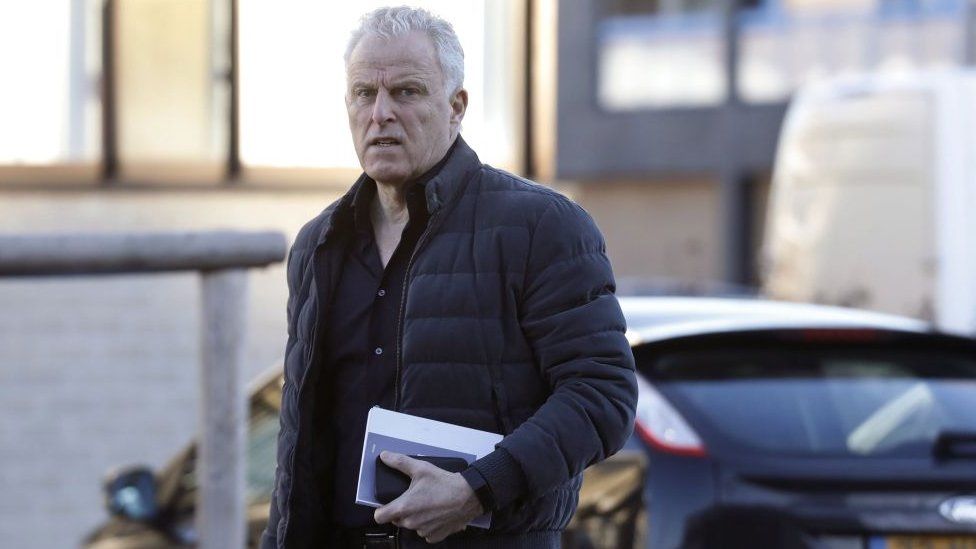
A year later, Nabil B’s lawyer, Derk Wiersum, was murdered outside his home.
Then, in July 2021, his confidante, the investigative journalist Peter R de Vries, was shot on a summer evening after leaving a TV studio in central Amsterdam. He died soon after.
Nabil B called the Marengo case “the most diseased and poisoned trial ever”.
Before the sentences were read out today, the court said these three killings added a “dark edge” to the proceedings.
Those murders are now being dealt with in separate trials.
Related Topics
-
-
19 December 2019
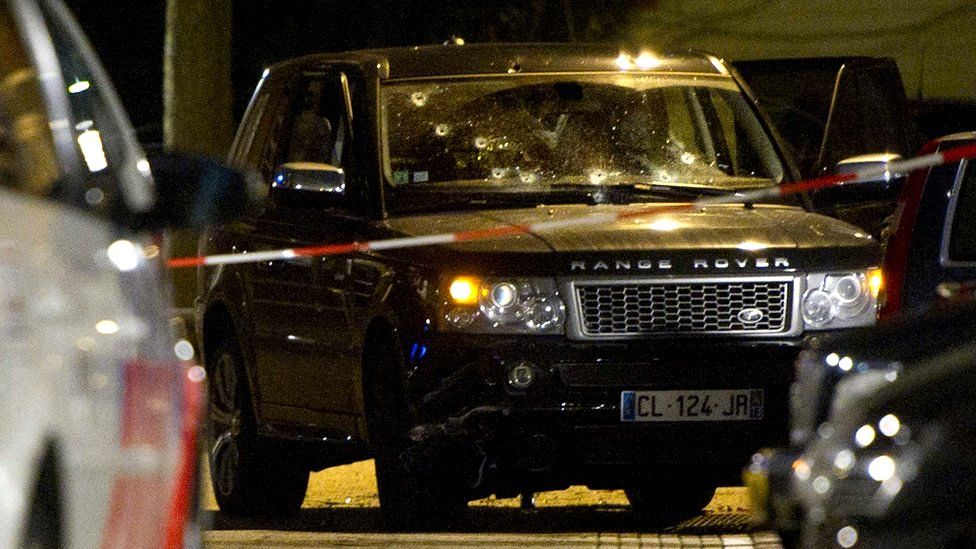
-
-
-
18 September 2019
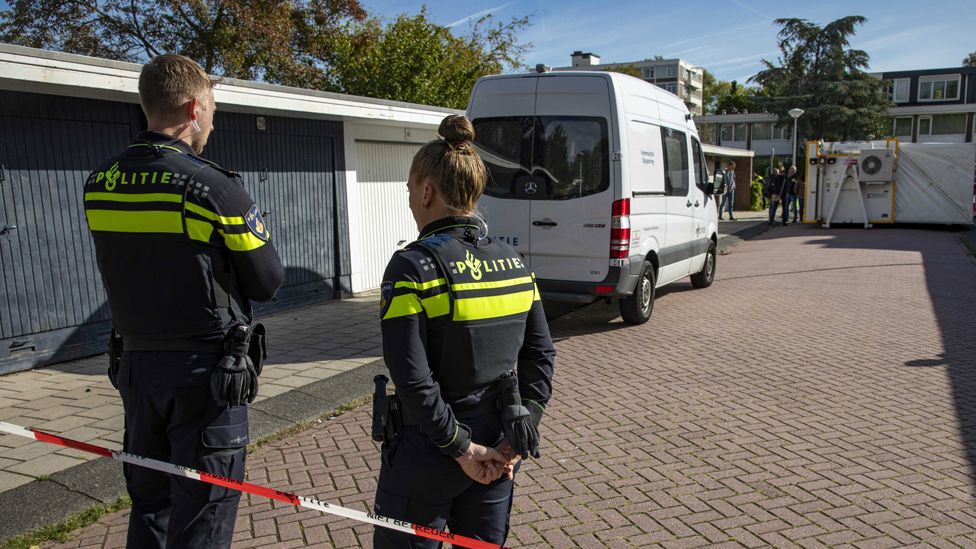
-
-
-
15 July 2021
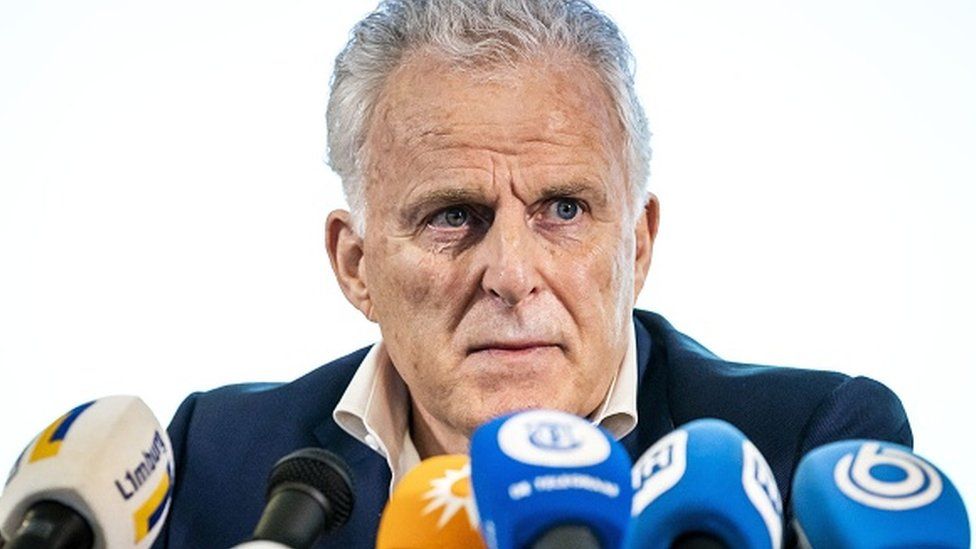
-
